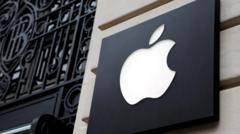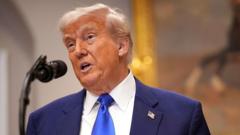In a significant legal setback, a U.S. district judge has determined that Apple willfully contravened her injunction in a case initiated by Epic Games, the creators of Fortnite. The judge, Yvonne Gonzalez Rogers, noted that a senior Apple executive had "outright lied" while testifying under oath. This injunction was aimed at preventing anticompetitive practices and fostering an environment in which App Store developers could present alternative payment methods to consumers. Judge Gonzalez Rogers has decided to enlist the US Attorney for the Northern District of California to appraise the situation for potential criminal contempt charges against the tech giant.
In a volatile response issued on Wednesday, Apple expressed its staunch disagreement with the ruling and reaffirmed its intent to appeal. The case dates back to a 2021 lawsuit in which Epic Games challenged Apple's 30% commission on app purchases, claiming it constituted monopolistic behavior. The judge's earlier ruling mandated that Apple cease prohibiting developers from directing customers to their own purchasing systems—opening avenues for direct transactions and competition.
Despite the ruling, Judge Gonzalez Rogers found that Apple had continued its obstructive practices, which she deemed intolerable. Internal documents reviewed by the judge allegedly indicated that Apple deliberately disregarded the injunction, opting for the most anticompetitive methods available. Citing this breach, Rogers criticized CEO Tim Cook for ignoring advice from executive Phillip Schiller and allowing CFO Luca Maestri to sway his decisions. The judge strongly implied that Cook's leadership may have been misguided.
One explicit example of Apple's alleged breach included charging a 27% commission on off-app purchases, reversing previous policies that imposed no such fees. Furthermore, the company reportedly enacted new conditions aimed at dissuading customers from utilizing competing purchasing platforms.
In a twist of events, Epic Games founder Tim Sweeney announced a planned return of Fortnite to the iOS App Store next week, suggesting a possible truce with Apple. Sweeney proposed that if Apple adopts a friction-free, tax-free payment model globally, it could pave the way for Fortnite's reinstatement and end any related litigation. He declared the end of what he dubbed the "Apple Tax," arguing that the company's commission practices are now unlawful in both the United States and Europe under the Digital Markets Act.




















